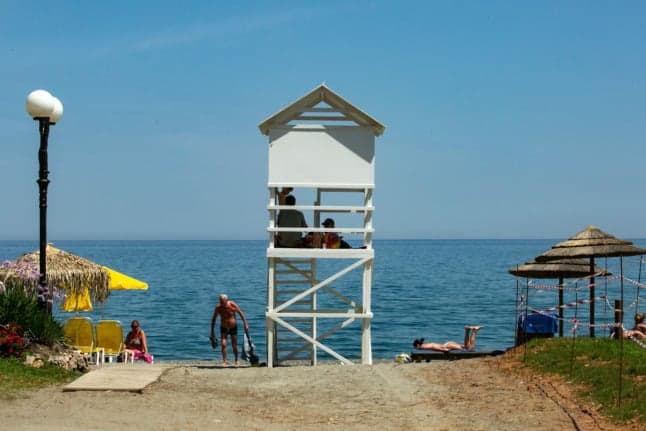Greece, Corsica and Crete removed from Germany's high-risk list

Germany's Robert Koch Institute is set to scrub popular holiday destinations of Greece, Corsica and Crete from its high-risk list on Sunday, as most regions of France also become 'risk free'.
In France, only the Provence-Alpes-Côte d'Azur region and some overseas territories will remain on the list from next week, according to the Robert Koch Institute (RKI).
On Sunday at midnight, a large part of South America will also become 'risk-free' once more as Argentina, Bolivia, Paraguay, Ecuador and Peru are removed from the list.
In addition, Oman and Namibia will be taken off the list.
The move will make it much easer for unvaccinated travellers to return from these regions to Germany, since people who are not vaccinated or recovered generally have to quarantine for 10 days on their return to the Bundesrepublik.
READ ALSO: Germany declares Greece and the Netherlands Covid ‘risk’ zones
This can be shortened to five days with a negative test.
However, keep in mind that there are still restrictions on which travellers can enter Germany from non-EU countries. The general requirement is that people need to be fully vaccinated against Covid with a vaccine approved in the EU.
READ ALSO: Can unvaccinated children travel to Germany?
Norway added to 'high risk' list
While the Mediterranean islands are getting the 'risk free' treatment, there's worse news for visitors to Scandinavia as the the Norwegian provinces of Oslo and Viken are set to be upgraded to RKI's high-risk list from Sunday.
Bosnia-Herzegovina, Nicaragua and Grenada are also set to be reclassified as high risk.
Since the start of August, Germany's public health authority has veered away from classifying countries solely on the basis of infection rates. It now considers other factors such as speed of the spread of the virus, the burden on the health system and the access to data on the Covid health situation.
People entering Germany from countries on the high risk list have to fill out the Einreiseanmeldung online form.
Comments
See Also
In France, only the Provence-Alpes-Côte d'Azur region and some overseas territories will remain on the list from next week, according to the Robert Koch Institute (RKI).
On Sunday at midnight, a large part of South America will also become 'risk-free' once more as Argentina, Bolivia, Paraguay, Ecuador and Peru are removed from the list.
In addition, Oman and Namibia will be taken off the list.
The move will make it much easer for unvaccinated travellers to return from these regions to Germany, since people who are not vaccinated or recovered generally have to quarantine for 10 days on their return to the Bundesrepublik.
READ ALSO: Germany declares Greece and the Netherlands Covid ‘risk’ zones
This can be shortened to five days with a negative test.
However, keep in mind that there are still restrictions on which travellers can enter Germany from non-EU countries. The general requirement is that people need to be fully vaccinated against Covid with a vaccine approved in the EU.
READ ALSO: Can unvaccinated children travel to Germany?
Norway added to 'high risk' list
While the Mediterranean islands are getting the 'risk free' treatment, there's worse news for visitors to Scandinavia as the the Norwegian provinces of Oslo and Viken are set to be upgraded to RKI's high-risk list from Sunday.
Bosnia-Herzegovina, Nicaragua and Grenada are also set to be reclassified as high risk.
Since the start of August, Germany's public health authority has veered away from classifying countries solely on the basis of infection rates. It now considers other factors such as speed of the spread of the virus, the burden on the health system and the access to data on the Covid health situation.
People entering Germany from countries on the high risk list have to fill out the Einreiseanmeldung online form.
Join the conversation in our comments section below. Share your own views and experience and if you have a question or suggestion for our journalists then email us at [email protected].
Please keep comments civil, constructive and on topic – and make sure to read our terms of use before getting involved.
Please log in here to leave a comment.